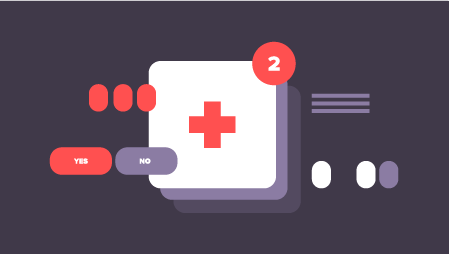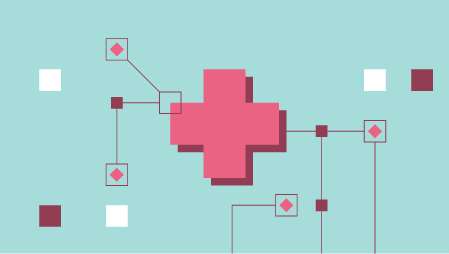The overall digital health market has been expanding in recent years, as technology pushed healthcare providers to offer advanced services through chatbots, healthcare apps, and online consultation. Then came along the pandemic, which pushed more health practitioners to adopt a digital approach to healthcare to cater to the needs and demands of people while they remained confined within their homes.
Women’s health is a budding domain in the digital health market. Ever since the first-ever period-tracking app released in 2016, the segment has been on a growth spurt. Finally, FemTech players are here to successfully catch up with years and years of unmet demand.
But, what is FemTech?
FemTech typically refers to any women’s health products that make use of technology to bring a high level of convenience to the female user segment. From breast pumps that store data, to devices that are used to strengthen pelvic muscles and menstrual cups, FemTech has come a long way. The fastest-growing component of Femtech, however, has been FemTech Mobile Apps, which for the most part – aid in monthly cycle mapping.
Flo, Clue, My Calendar, Eve and Fertility IQ is only a handful of the FemTech Mobile apps doing the rounds right now. According to Emergen Research, the industry was valued at an astounding USD 18.75 billion as of 2019. It is expected to grow at a compounded annual growth rate of over `16% to reach a market worth of USD 60 billion by 2027.
Why are FemTech mobile apps becoming popular?
With digital transformation and mobile app development, FemTech mobile apps have been met with such popular reception because they are effectively bridging a prevalent gap in the market. Some of the benefits offered by FemTech mobile apps include:
- Easy, on-the-go tracking
All the period ads that one sees on TV effectively showcase the stress that surrounds the five red days in a woman’s monthly cycle. Period tracking apps have alleviated the need to remember the actual date when one’s period is expected. This helps women plan their various period-related lifestyle changes and take precautions. Period tracking apps automatically tell women when to expect their next period. They also don’t need to wait to get somewhere to note down the date when their period began.
- Privacy
Back in the day, women made doodles and scribbles on physical calendars to help remember their last cycle and pre-empt their next period. Imagine how embarrassing this must have been among siblings, not to mention how much the embarrassment is compounded in our typical Indian joint family system. While it is true that women shouldn’t be embarrassed by the natural order of nature, it is fairly common for women to want to keep such details of their lives private. Period tracking apps give women the freedom to choose privacy if they so wish.
- Versatility
With mobile application development, Femtech mobile apps have not only period tracking capability, but in most cases also map potential ovulation days. They track moods, overall health, water consumption, intercourse, and even exercise in some cases. This has the potential to promote holistic wellness among female users.
- Historic data
From tracking one’s moods and noticing patterns, to offering useful data to gynecologists and noticing changes in the way one’s body behaves, the ability to retain historic data is one of the biggest benefits brought to the table by FemTech mobile apps.
- Free of cost
A lot of these apps are completely free of cost and as a result, women of all income groups can opt for them, so long as they have smartphone access. In a way, FemTech apps are empowering women from all backgrounds to take active charge of their health and well-being.
What are the must-have features of a FemTech mobile app?
FemTech apps should offer at least some, if not all, of the following features. At the moment, the FemTech mobile app universe comprises mainly of period tracking apps that also offer ovulation insights and as a result, we will focus our attention on requirements specific to these:
- Prediction feature
A period tracking app is fairly useless if it cannot offer a prediction on when the user is to expect her next period. The app should handle calculations – the user should not have to do her own calculations and input them into the app. The algorithm used to make the app must take this rather basic requirement into consideration.
- One tap updates
Whether a user is time-strapped or concerned with privacy, it is imperative that the developers of FemTech apps make it easy for period start and end dates to be easily and quickly entered. A one-tap log creation feature is ideal.
- Availability of historic data
Users should be able to access data for the past few months or the past few years or for the duration that they have been using the app. The data should not expire or disappear. Many users see this feature as one of the best things about period tracking apps. It helps them and their doctors and gynecologists track and observe changes in how their bodies evolve as they age.
- Free and paid options
The popularity of FemTech apps can possibly be credited – at least in part – to the fact that they are free. Most app-makers seem to be monetizing them by advertisements. App developers who want to make apps chargeable might want to consider a model wherein a free version is put on the market but to unlock better or full features, a token sum or monthly sum needs to be paid. In other words, they can adopt the strategy being used by the music streaming app, Spotify.
- 360-degree focus
App developers need to ensure that FemTech Apps cover holistic women’s health. Most of the apps on the market – as discussed earlier – effectively cover not just period tracking but overall wellbeing. Apps must have a section where the user’s frame of mind and overall health can be tracked during her period and over the course of the month. This helps the user identify patterns and make lifestyle changes if desired.
- Security and privacy
My Calendar is called Period Tracking app on the Play Store but when it is downloaded on the user’s phone it appears simply as My Calendar. This ubiquitous name lends some amount of privacy. In addition, the option to set passwords might be appreciated by women who value their privacy. Imagine a mother who lets her children use her phone for gaming every now and then. Surely she would not like them stumbling upon the details of her period or next gynecologist visit.
Conclusion
While there are a ton of players on the market already, there is immense room for growth when it comes to FemTech mobile apps. With an anticipated growth rate of over 16% – which means that the industry will more than triple its size in six years – the domain holds ample scope for multiple players to join the fray and carve a niche for themselves. Moreover, the uptake for such apps has so far been most pronounced in developed countries. There is definitely plenty of opportunities for new markets to be tapped. Besides room for profit, there is a social angle to chasing this segment as well.
The bottom line – with mobile app development, FemTech mobile apps can go a long way in empowering women to make informed decisions linked to their health and overall wellbeing.




